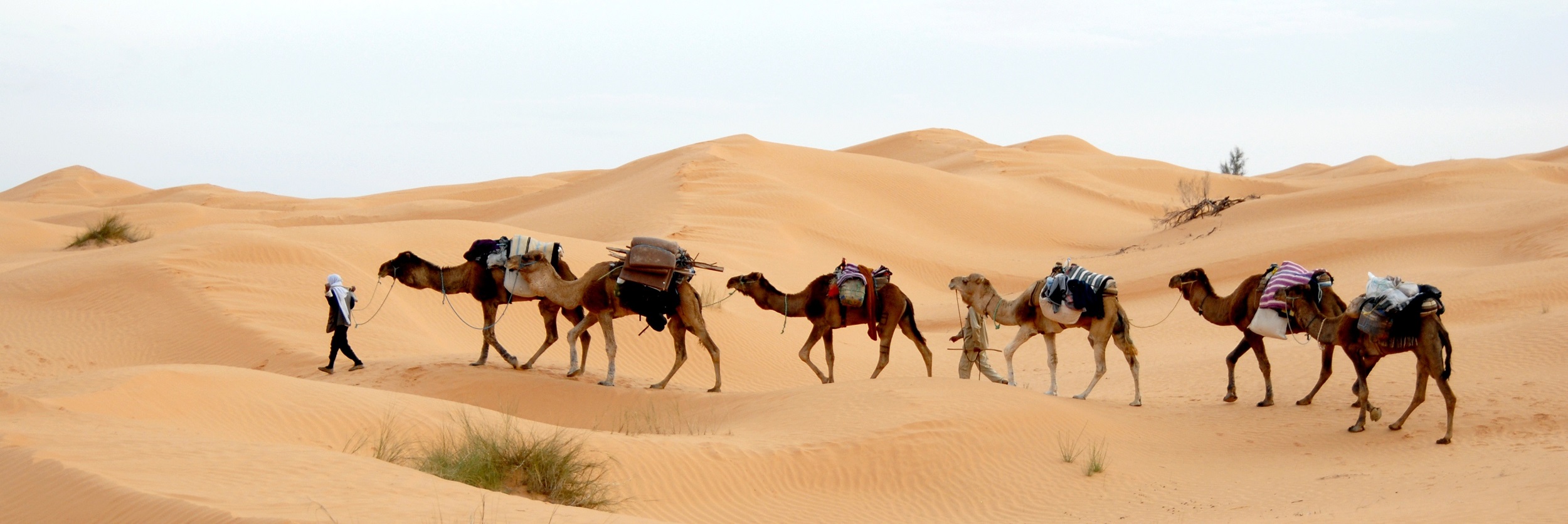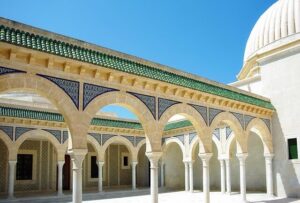Tunisia: Tourist Overview
Tunisia is a truly interesting country from a tourist point of view, not only for the beauty of its capital Tunis, but also for everything else the rest of the country has to offer: from long beaches with crystal-clear waters to enchanting deserts, from archaeological parks to millennia-old traditions – this North African country is sure to amaze anyone who decides to visit.
Carthage
A prime example of the above is Carthage, a name we all studied in history books, though perhaps not everyone realizes that this ancient Phoenician city was located just a few kilometers from what is now modern Tunis. The archaeological park of Carthage, a UNESCO World Heritage Site since 1979, is one of the typical excursions when staying in Tunis: it allows you to admire ancient fortifications, temples, sacred sites, dwellings, Punic tombs, and mosaics that depict the daily life of its ancient inhabitants.
Roman Ruins
After the area was conquered, the Romans began to colonize the entire coast, leaving a significant legacy. This is the case of Dougga, where you can admire magnificent ruins and a theater restored in the early 2000s. Moreover, the Roman amphitheater of El-Jem is noteworthy, majestic like the Colosseum, which could accommodate over 35,000 spectators and now dominates the center of the city.
Characteristic Villages
Always near Tunis is the splendid Sidi Bou Said, a characteristic village with white and blue houses, ideal for a day of relaxation with outdoor cafés and shopping. In addition, the small village of Matmata, situated at an altitude of 600 meters, is famous for its troglodyte cave houses carved into the ground, which even provided the setting for some scenes of the film Star Wars – Episode IV.
The Desert
One cannot speak of North Africa without mentioning the desert. The Tunisian desert begins in Tozeur and stretches out into vast stretches of Saharan sand. A guided tour allows you to discover the most fascinating spots, such as the breathtaking dunes and the refreshing oases in the shade of palm trees.
The Beaches
The main reason tourists visit Tunisia is its beaches. Djerba and Hammamet are renowned Mediterranean destinations, known for their affordable resorts and relaxing atmosphere, perfect for those seeking the perfect balance between cultural tourism and seaside relaxation.
Other Information
How to Get There
When to Go
What to Pack
Entry Documents
What to Eat
Festivals and Events
Safety
Beaches
FAQs
- 1. What are the main tourist attractions in Tunisia?
- Tunisia offers a wide range of attractions: from the vibrant capital Tunis to the historical heritage of Carthage, through the Roman ruins of Dougga and El-Jem, to the picturesque villages of Sidi Bou Said and Matmata, as well as the vast desert and the renowned beach resorts of Djerba and Hammamet.
- 2. Why is Carthage considered a site of great importance?
- Carthage has been a UNESCO World Heritage Site since 1979 and preserves historical evidence such as fortifications, temples, sacred sites, dwellings, Punic tombs, and mosaics that depict the daily life of its ancient inhabitants.
- 3. What Roman ruins can be visited in Tunisia?
- Among the most significant Roman ruins are those of Dougga, with its restored theater, and El-Jem, whose amphitheater could accommodate over 35,000 spectators.
- 4. What makes the villages of Sidi Bou Said and Matmata unique?
- Sidi Bou Said is famous for its white and blue houses and its picturesque charm, while Matmata is renowned for its cave houses carved into the ground, which even inspired some scenes in the famous film “Star Wars – Episode IV”.
- 5. What experiences does the Tunisian desert offer?
- The desert, which begins in Tozeur, offers breathtaking landscapes: from sandy dunes at sunset to lush oases with palm trees, perfect for guided excursions.
- 6. What are the most popular beach destinations?
- Djerba and Hammamet are renowned beach resorts, famous for their affordable resorts and relaxing atmosphere that attract tourists from all over the world.





